“She was happy to be alive and breathing, when her whole being seemed to be one with the sunlight, the color, the odors, the luxuriant warmth of some perfect Southern day. She liked then to wander alone into strange and unfamiliar places. She discovered many a sunny, sleepy corner, fashioned to dream in.”
Time passes much more slowly here at Grand Isle, an effect likely caused by the fact that the Wi-Fi connection in our lovely beach house is tenuous at best. The microwave takes longer to heat food, my phone charges at a sluggish pace, trawlers leave mild ripples in their wake. Ours is a general atmosphere of relaxedness—but not lethargy—that is perfectly suited to our reading purposes. It is so much easier to become immersed in the world of The Awakening, which is the very world around us, without the pressures of social media (though my Instagram account is due for an update).
In many ways, coming to Grand Isle for the first leg of our bookpacking trip is the perfect start. Reading The Awakening right on the beaches where much of the novel takes place is almost uncanny. This is an excellent way to demonstrate what bookpacking is meant to be. We are able to travel to a region and learn about it through experience and literature, and so we are truly immersed in a journey that is both eye-opening and enjoyable.
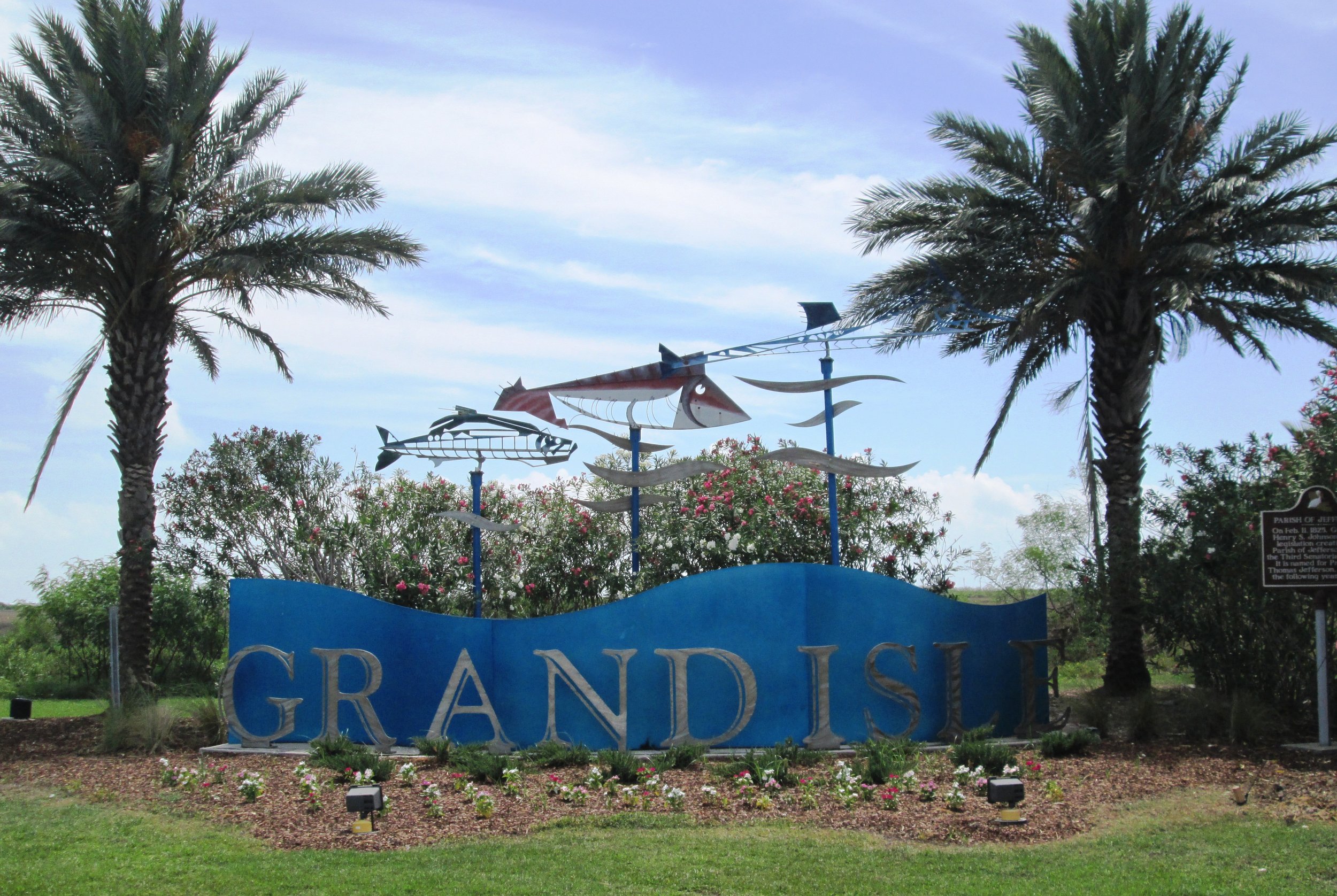
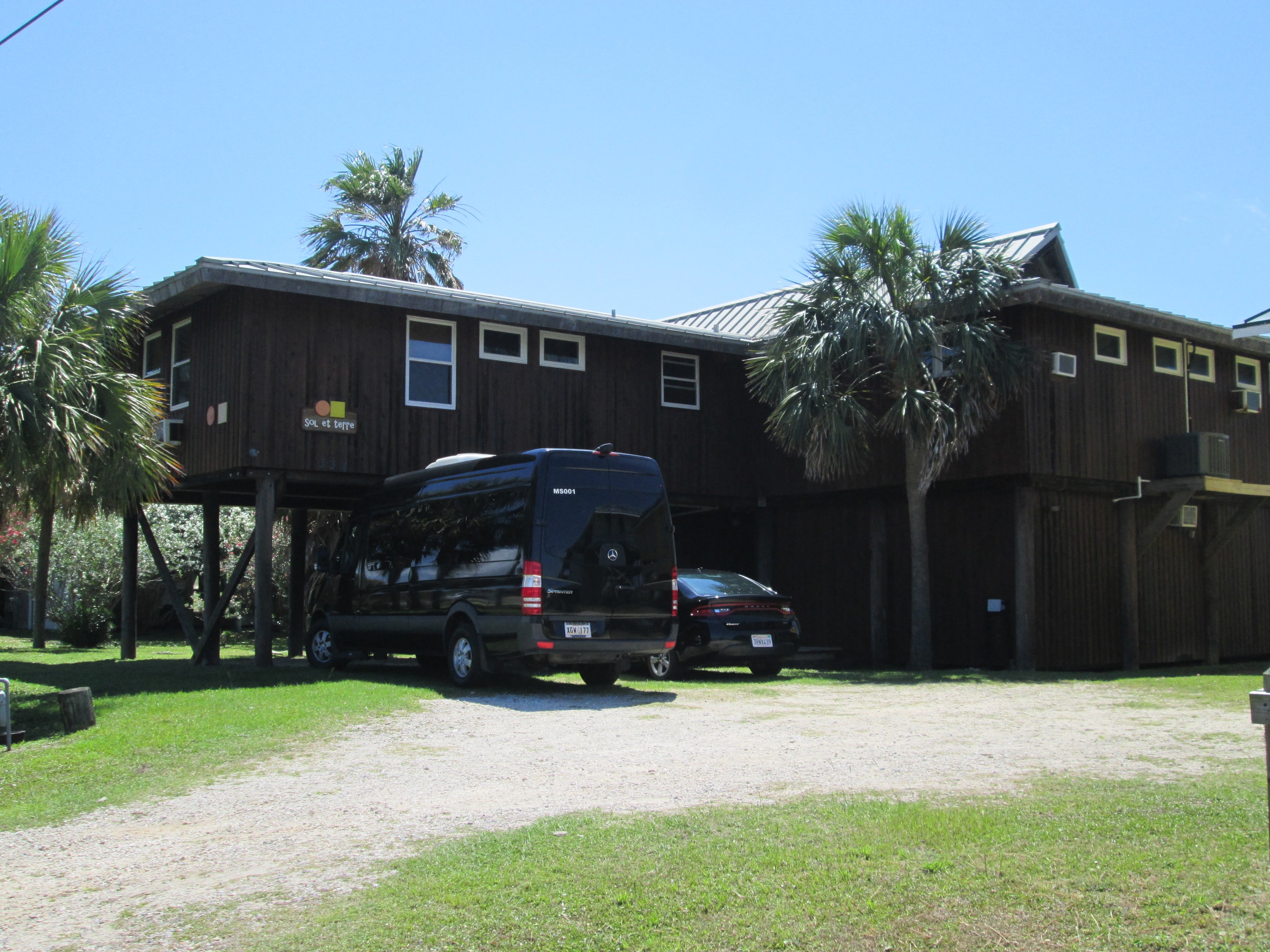
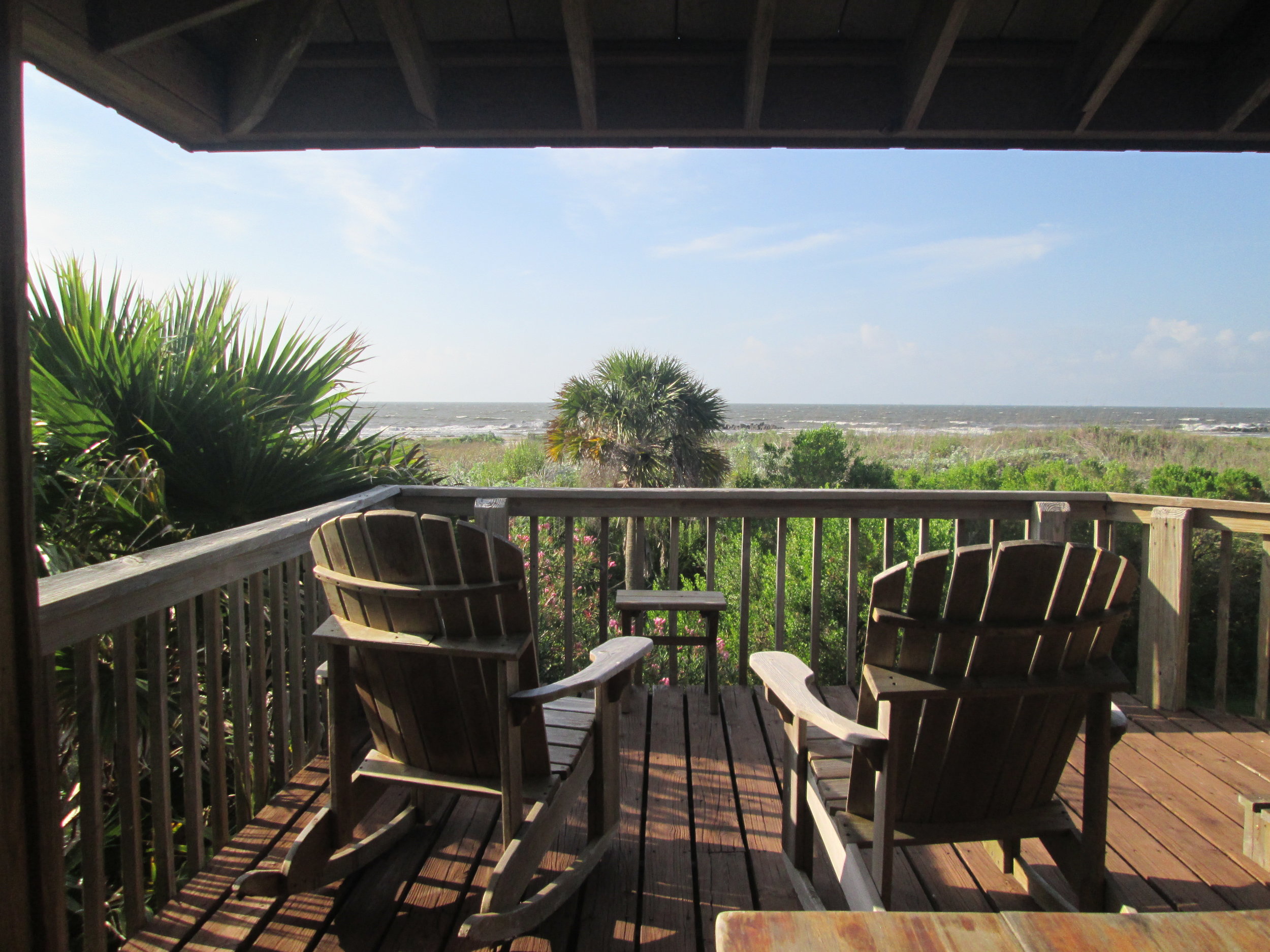

What makes bookpacking so profound is the chance to see how literature and reality reflect each other. Behind Kate Chopin’s vivid descriptions of Edna Pontellier’s mental and emotional turmoil, Grand Isle’s easygoing, carefree air can be sensed. In the first few pages or so, Mr. Pontellier “idly” watches a “sunshade that was advancing at a snail’s pace from the beach”—Louisiana’s equivalent of tumbleweed. Also apparent is the importance of religion, specifically Catholicism, to the summer vacationers. One character, described only as “a lady in black,” wanders around constantly “telling her beads,” and others often take a ferry to Chênière Caminada “to hear mass.” Though Edna herself is not Creole, the characteristics of the Creole society which she essentially marries into are still prevalent in the novel.
Something that fascinates me is how Grand Isle still displays a rather strange combination of this “apparent disposition to relax” and a sense of Christian prominence. As for the former, the fact that the island remains a popular holiday destination speaks for itself. The beaches and the “voice of the sea” remain “seductive” and “inviting” to all who can afford to rent a beach house for a few days. The latter is evident in the sign that reads, “Jesus Christ Reigns over Grand Isle,” which greets visitors immediately after first driving onto Grand Isle. The graveyard on the island is also an assemblage of crosses and icons and statues of Mary, which, I suppose, is not exactly atypical.
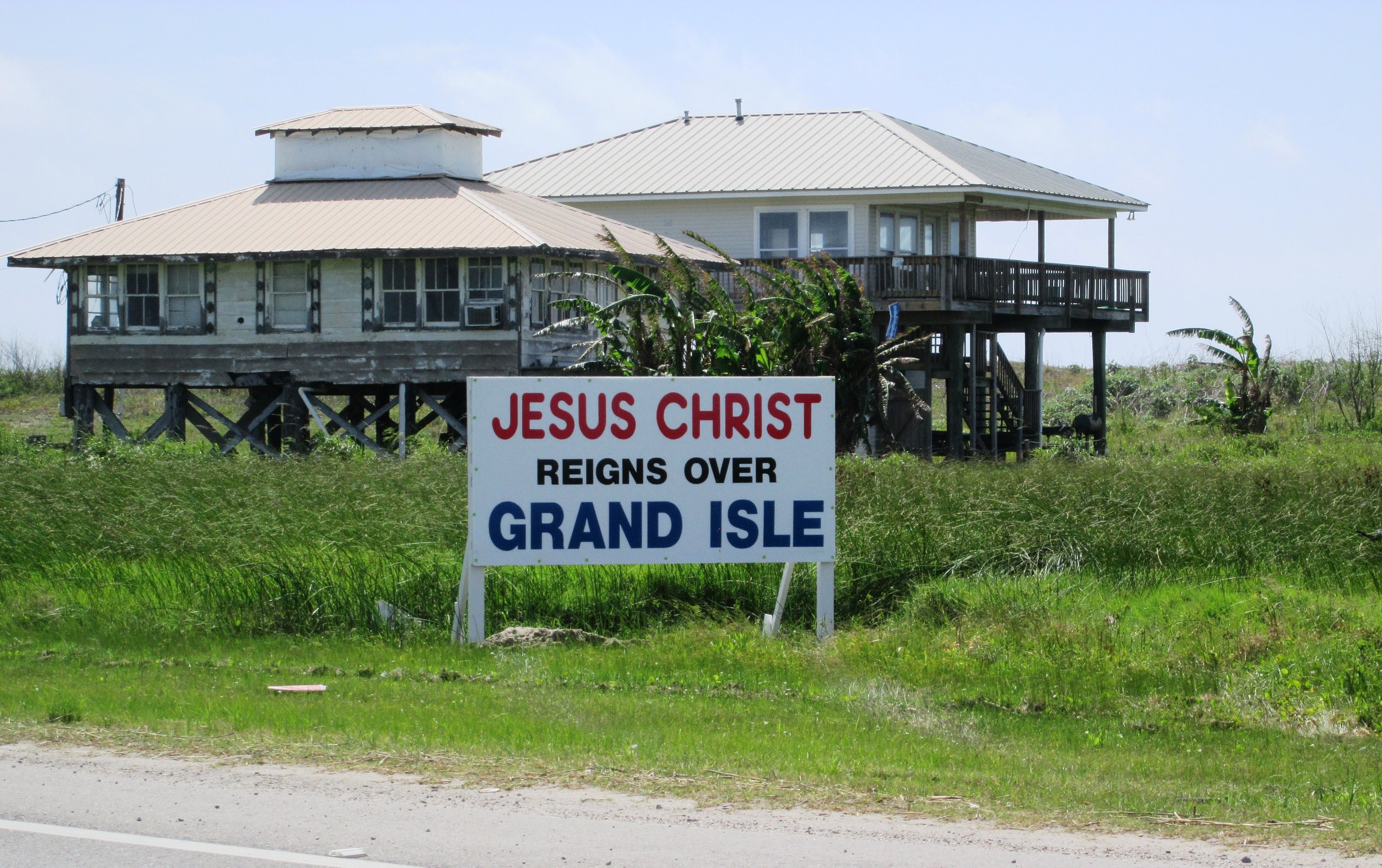
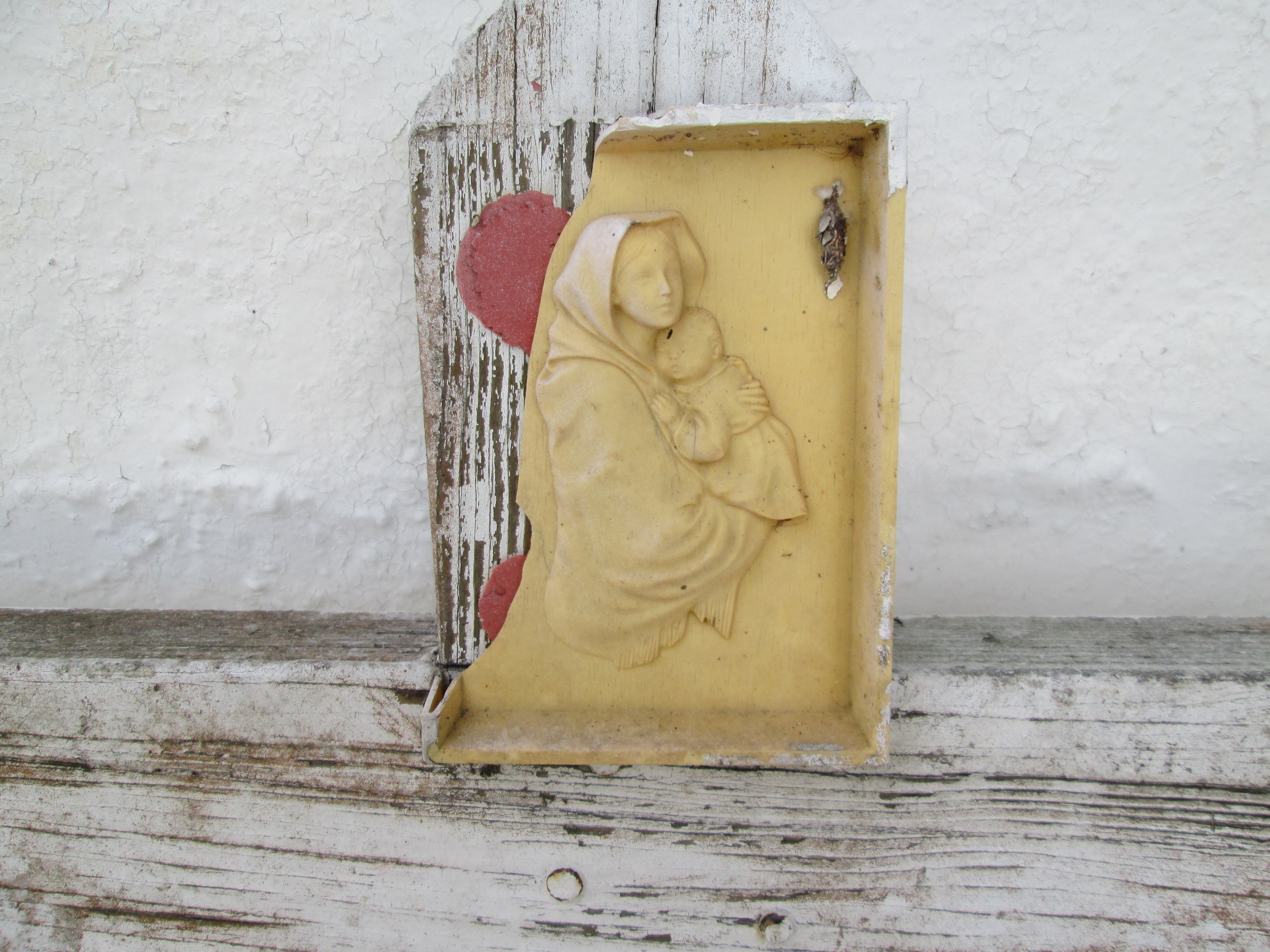
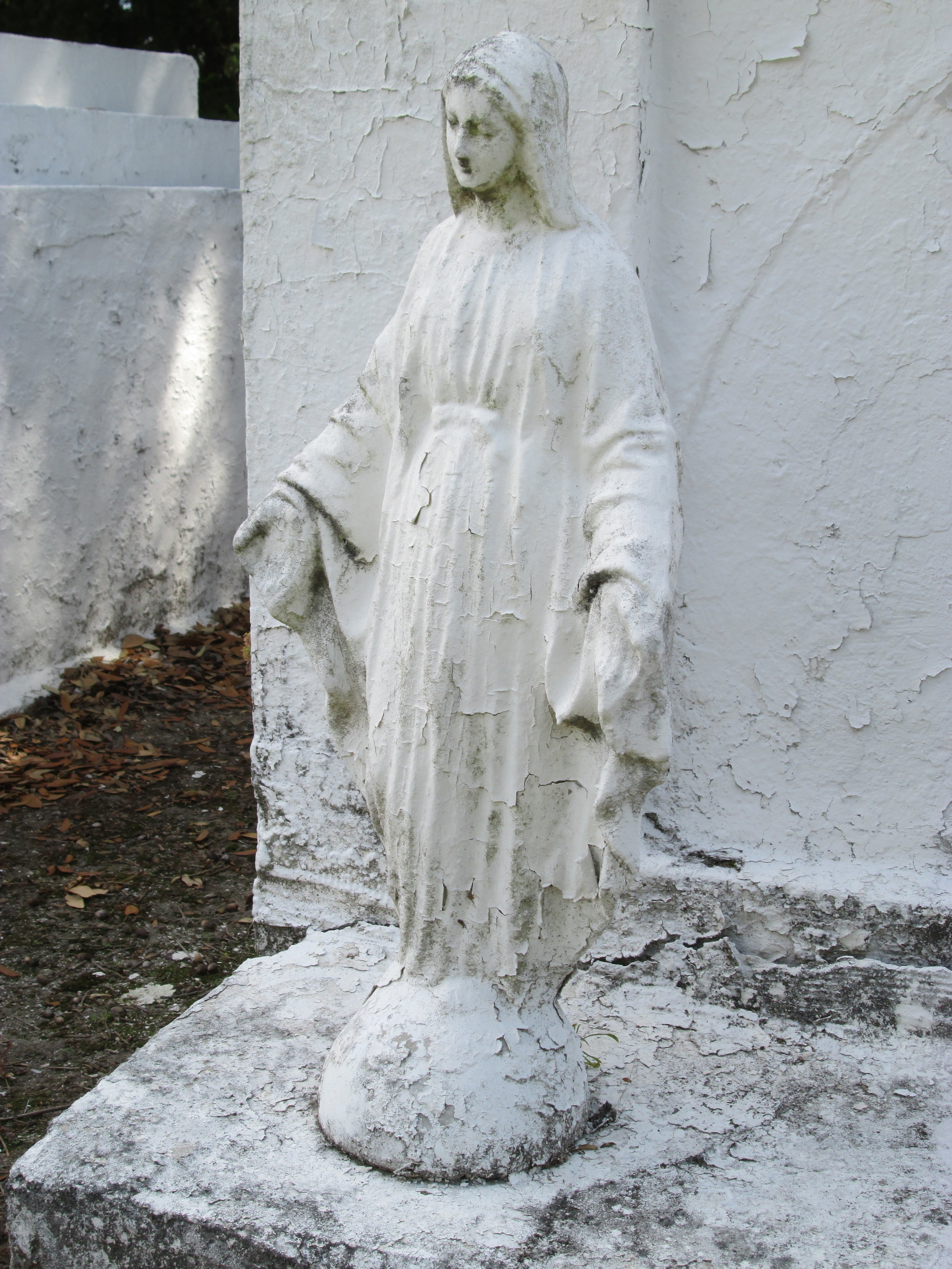
One small bit of graffiti, if it can be called that, exemplifies these characteristics best. A pillar in Grand Isle State Park’s observation tower bears the following inscription:
NOT ALL WHO
WANDER
ARE LOST
The phrase is certainly a cliché, but it is an effective one. Grand Isle is truly a place where one can walk around with no particular destination in mind and take a stroll simply for the pure pleasure of it.
Someone else, however, has made a slight amendment to the original phrase:
NOT ALL WHO
WANDER
[ALL WHO ARE NOT SAVED]
ARE LOST
The simple addition of five words changes the meaning of the phrase entirely. It now expresses a strong sense of religious fervor. While the idea that all who do not believe are lost is true from a Christian (or generally religious) perspective, the manner in which this sentiment is expressed is somewhat ominous. Lurking just beneath the surface of this statement is a threat of hellfire and damnation, which is arguably not the best way to proselytize.
Halfway between innocuity and something much darker, the inscription reminded me of the Creole society that Edna finds herself in, a somewhat contradictory combination of freedom and rigidity. Bookpacking thus affords me deeper insight into Edna's mind than simply reading at home would. After only a few days on the road, I've already felt bookpacking's power to generate greater understanding of people, place, and novel.

